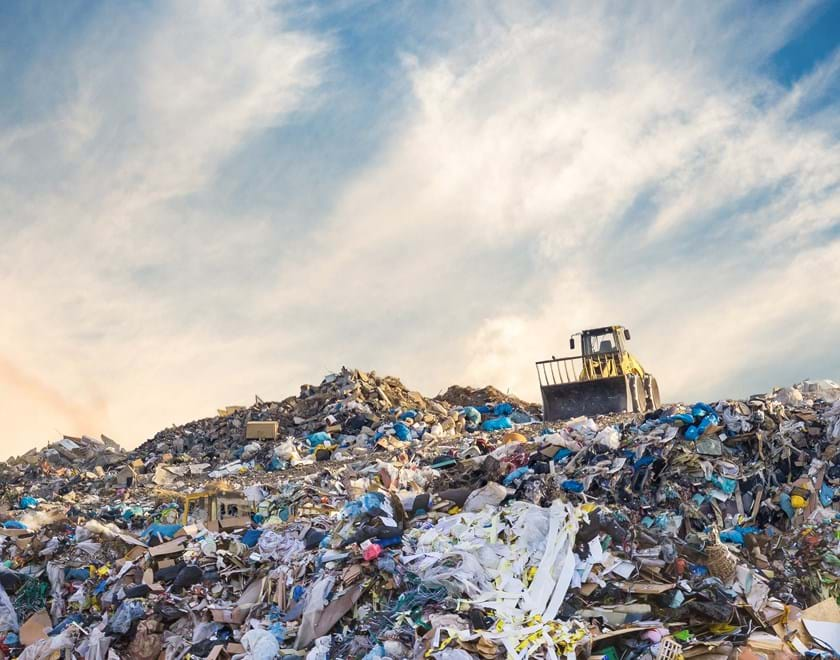We’re going to court to block Europe’s largest plastic facility once and for all
We’ve taken Danone to court over its plastic footprint*
We’re challenging Nestlé and Coca-Cola’s misleading claims that their water bottles are "100% recyclable"
At ClientEarth, we’re taking legal action against the world’s largest companies and governments, to tackle their over-reliance on plastic.
From our local food shop to our favourite nature spots and even our bodies, plastic is truly everywhere.
But how big is the problem and what can we do to prevent it?
7 shocking plastic pollution facts:
Over 50% of plastic only gets used once and thrown away [1]
Over 98% of single use plastic comes from fossil fuels [2]
Only 9% of plastic ever produced globally has been recycled [3]
Scientists estimate there are about 171 trillion pieces of plastic in the ocean [4]
An estimated 300,000 whales, dolphins and porpoises die every year from discarded plastic fishing gear [5]
Microplastics were found in the blood of 80% of people tested in a recent study [6]
Plastic production will generate the same amount of planet-warming pollutants as 615 coal-fired power stations by 2040 if production continues at the current rate [7]
Help us use the law to fight plastic pollution

How is plastic pollution damaging the planet?
Plastic is one of the leading causes of marine wildlife deaths, as whales, turtles, and other marine animals ingest it or get entangled in it.
A less well-known consequence of the over-reliance on plastic is the greenhouse gas emissions released by producing plastic. Plastic is made from fossil fuels, so it emits carbon at every stage of production, worsening climate change.
That’s why together we need to block Europe’s largest plastics project, which British company INEOS is trying to expand. We’re up against huge interests, as evidenced by the UK government’s £600 million backing of INEOS’s project.
But we must fight plastic at source to prevent plastic pollution and protect the planet for future generations.

Join our fight against plastic pollution
How can we prevent plastic pollution?
Most of us feel like we’re drowning in plastic. And while we do our best to reduce, reuse and recycle it, large corporations make it impossible to avoid by pumping tonnes of plastic into our lives.
That’s why the best way to prevent plastic pollution is to reduce the amount of unnecessary plastic being produced in the first place.
At ClientEarth, we’re using the law to fight plastic pollution at source:
Support our legal fight against unnecessary plastic
How can I reduce plastic waste?
While recycling is less harmful than plastic being incinerated or going into landfill, recycling alone can never catch up with the sheer volume of plastic produced on our planet.
Together, we must show companies and governments that we want them to stop producing unnecessary plastic to begin with.
That’s why joining this incredible community and powering the fight against plastic is the best thing you can do to help reduce plastic waste.
Together, we can turn the tide against plastic pollution and preserve our planet for generations to come.
Join our community fighting unnecessary plastic for a healthier future

1 The Future of Reusable Consumption Models Report, World Economic Forum, 2021
2 Top 25 recycling facts and statistics for 2022, World Economic Forum, 2022
3 Production, use, and fate of all plastics ever made, Science Advances, 2017
4 Eriksen M, Cowger W, Erdle LM, Coffin S, Villarrubia-Gómez P, Moore CJ, et al. (2023) A growing plastic smog, now estimated to be over 170 trillion plastic particles afloat in the world’s oceans—Urgent solutions required.
5 Bycatch, WWF, 2022
6 Heather A. Leslie, et al, Discovery and quantification of plastic particle pollution in human blood, Environment International, Volume 163, 2022
7 Plastic & Climate: The Hidden Costs of a Plastic Planet, Center for International Environmental Law, 2019
*NB: Our legal action against Danone is currently in mediation.
NB: We will allocate your donation to the area of greatest need, ensuring it has the most significant impact possible.


